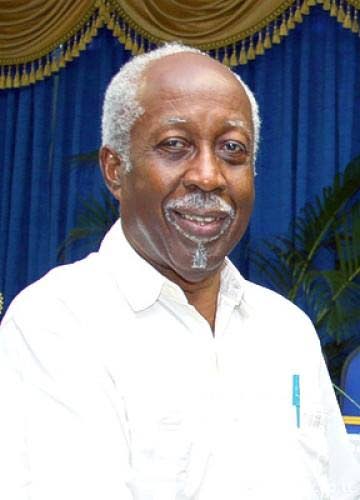An act of cynicism

REGINALD DUMAS
A FEW WEEKS ago THA Chief Secretary Farley Augustine charged that “hordes of (licensing) officers (had come) from Trinidad to terrorise Tobagonians. That should never be the case…There must be a measure of respect (in) how they do their duties.” (I am advised that many of the officers involved are in fact Tobago-based.)
Augustine agreed, however, that transport officers have a legal right to try to ensure that citizens abide by the laws on motor vehicle use of the roads. I would imagine that the effective exercise of that right must involve, among other things, the elements of unexpectedness and surprise.
If you give public notice that you will be checking vehicles on such-and-such a day in such-and-such a place, you won’t find too many defective vehicles; the bulk will reappear after you’ve gone. Just the same, the THA should, as a matter of courtesy, have been quietly informed in advance of the operation. Not too long in advance, though.
But “hordes?” “Terrorise?” I wondered if latter-day Mongols had invaded. My personal experience was very different indeed. I was among those stopped by the licensing people, but the young officer who spoke to me was the very essence of courtesy. He couldn’t possibly have been recruited as a Genghis Khan acolyte.
Unsurprisingly, Augustine also said that “licensing” was one of the THA’s areas of responsibility under the Fifth Schedule of the THA Act. So it is. But licensing of what? Vehicles? Drivers of vehicles? Bars? Jewellery shops? Medical establishments? What? And if the THA is responsible for all licensing – the schedule gives that impression – why does the Seventh Schedule (services to be performed or delivered in Tobago) list two central government ministries “in respect of the granting of licences?”
I spoke in my last article of the ineffectuality of the Fifth Schedule; it wasn’t the first time. This is what I wrote in a Trinidad Guardian article of March 25, 2000:
“From day one, I have said to all who would listen, and to all who haven’t wanted to hear, that the 1996 act is a grievously deficient piece of legislation. It conflicts with existing law; it conflicts with itself. It is by turns vague and impractical, and those characteristics in particular have led to sharply differing interpretations of many of its provisions by central government and THA Executive Council alike.
“The core of the issue is what the act was designed to achieve and how. Tobago thought it was getting genuine autonomy and that it would be free to run its affairs, even in the international field – collection of revenue, raising of loans, placement of investments, that sort of thing.
"The central government, however, gave primacy to section 25(1) of the act, which states that ‘Without prejudice to section 75(1) of the Constitution, the Assembly shall, in relation to Tobago, be responsible for the formulation and implementation of policy in respect of (certain) matters…’
“Section 75(1) of the Constitution says that there ‘shall be a Cabinet for Trinidad and Tobago which shall have the general direction and control of the Government of Trinidad and Tobago and shall be collectively responsible therefore to Parliament.’
"You have only to read (what then AG Ramesh Maharaj told Parliament) to understand clearly that what Tobago believed it was receiving did not in any way square with the philosophy and declared intentions of the Government. Section 75(1) of the Constitution was to hold sway; the Cabinet would dictate. There has been only confusion since. The more Hochoy Charles fulminates about betrayal by Port of Spain, the more Mr Panday dances away.”
Nearly 25 years have passed and, Charles and Panday excepted, I could write the same words today. Tobago still ineffectively fulminates; successive central governments (and now a joint select committee of Parliament?) still make vague noises, then dance away. Tobago has to decide what it wants, or would like to have, and why, then sit and have informed discussions with the central government.
And by “Tobago” I do
not mean this or that individual or small group of individuals. Or politicians, always driven by what they see as their “legacies,” promising they will succeed where others before them have failed. By “Tobago” I mean the people of Tobago, across the island. Let them be properly consulted, let there be broad agreement and consensus, then let us proceed.
Otherwise, we all run the risk of doing (and saying) the same thing over and over again and expecting a different result. That is the definition, attributed (I believe wrongly) to Albert Einstein, of insanity.


Comments
"An act of cynicism"